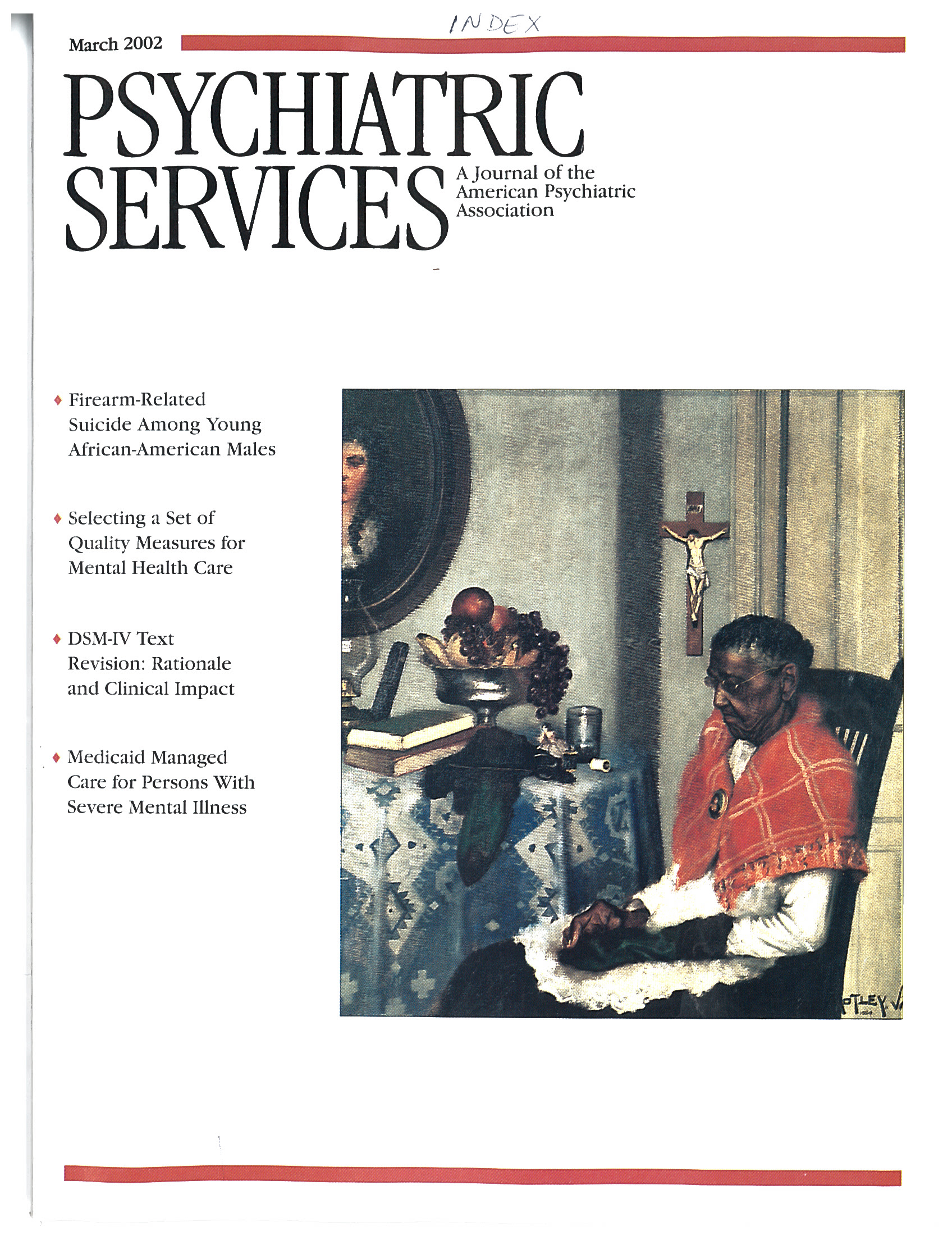To the Editor: Borderline personality disorder can be difficult to treat because of symptoms of impulsivity, unstable affect, and self-destructive behavior. These symptoms may lead to recurrent psychiatric hospitalizations. Clozapine is an atypical antipsychotic medication that has proved useful in the management of both psychotic and mood disorders (
1) and that has been shown to decrease aggression (
2) and the risk of suicide (
1), which suggests that clozapine may be useful in the management of severe borderline personality disorder.
In 1996 clinicians at Northcoast Behavioral Healthcare, a state psychiatric hospital in Ohio, began to use clozapine to treat patients who had severe borderline personality disorder. All patients with borderline personality disorder who were admitted to the hospital were considered to have a severe form of the disorder, because the counties that admit patients to the acute service tightly restrict access to the state hospital. All such patients were offered clozapine. In 2000 a retrospective chart review was conducted with the hospital's medical records and the computer database maintained by the Ohio Department of Mental Health. The study was approved by the hospital's institutional review board.
Six women and two men with borderline personality disorder were treated with clozapine between 1996 and 1999. Five were acute patients who stayed in the hospital less than a year. The average length of stay for the other three patients was 4.5 years (range, 1.3 to 9.9 years). Six of the eight patients had previous admissions to the state hospital, and from the date of first admission, they used an average of 110 hospital days per year (range, 42 to 200 days). Three of the patients had a comorbid diagnosis of a psychotic disorder—one had a history of substance-induced psychosis, and two had auditory hallucinations only. The clozapine dosage was based on clinical response; the mean daily dosage at the time of discharge was 334 mg (range, 175 to 550 mg). No patient discontinued clozapine; few side effects were reported.
Seven of the patients were discharged on clozapine, including two extended-stay patients. The average length of stay after the first dose of clozapine was 60.5 days (range, 35 to 92 days). During a follow-up period of 14 to 48 months, four of the patients were readmitted, one of them twice. Four readmissions were due to decompensation after discontinuation of clozapine by either the patient or the community clinician, and the fifth was a brief stay due to transient stressors in the patient's life shortly after discharge. The average duration of the readmissions was 54.8 days (range, 12 to 104 days). Clozapine was restarted or continued in each instance. Among the seven patients who were taking clozapine when they were discharged, state hospital use declined to a mean of 6.3 days per patient per year (range, zero to 70 days per year).
These results are in line with previous reports that patients who had borderline personality disorder with psychotic features responded to clozapine (
3,
4,
5). The results reported here extend these findings, because psychosis was not a selection criterion for use of clozapine. In addition, the previous studies did not examine hospital use before and after clozapine treatment. On the basis of the current cost per day at Ohio state hospitals, the reduction in state hospital use is equivalent to a savings of just over $36,000 per patient per year.
Thus clozapine may be very useful in the management of patients with severe borderline personality disorder, even in the absence of psychosis, because it may allow patients to remain in the community as they work on underlying psychological issues, which significantly lowers the costs of their care.

